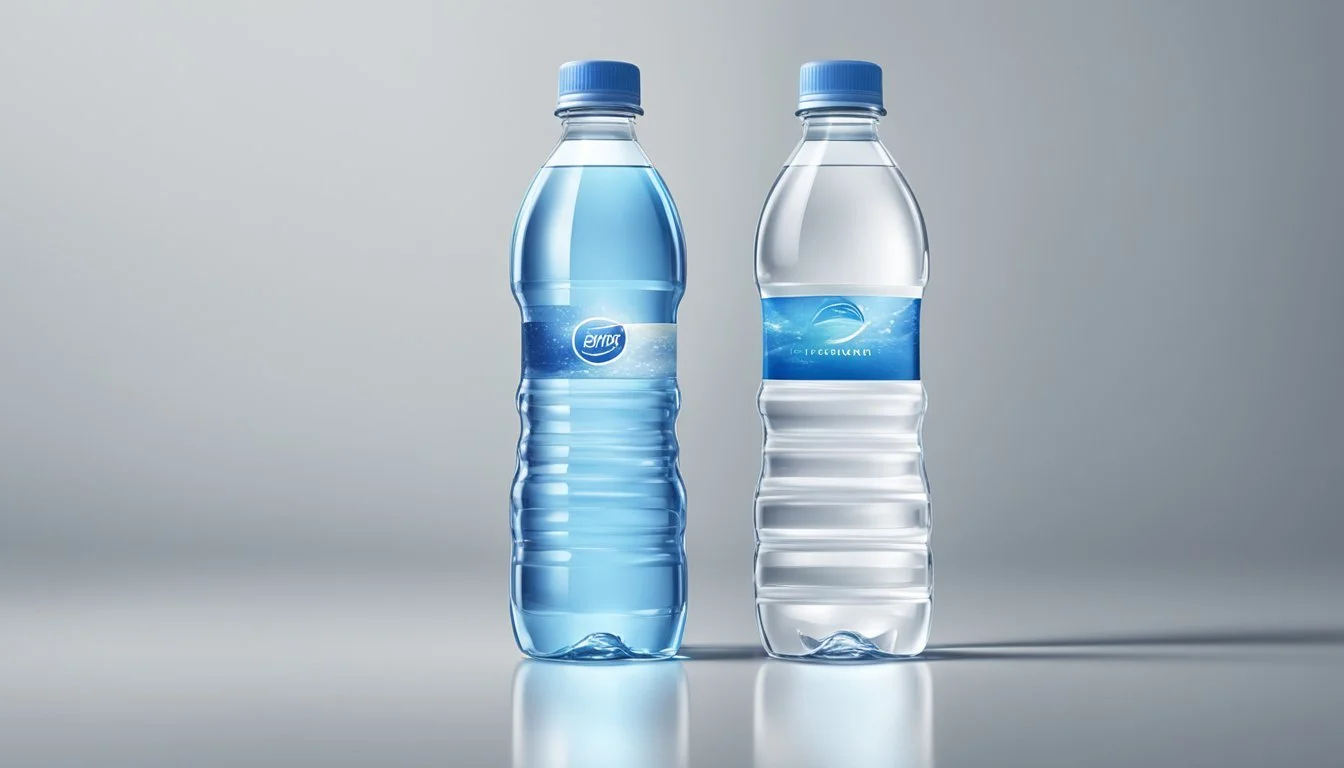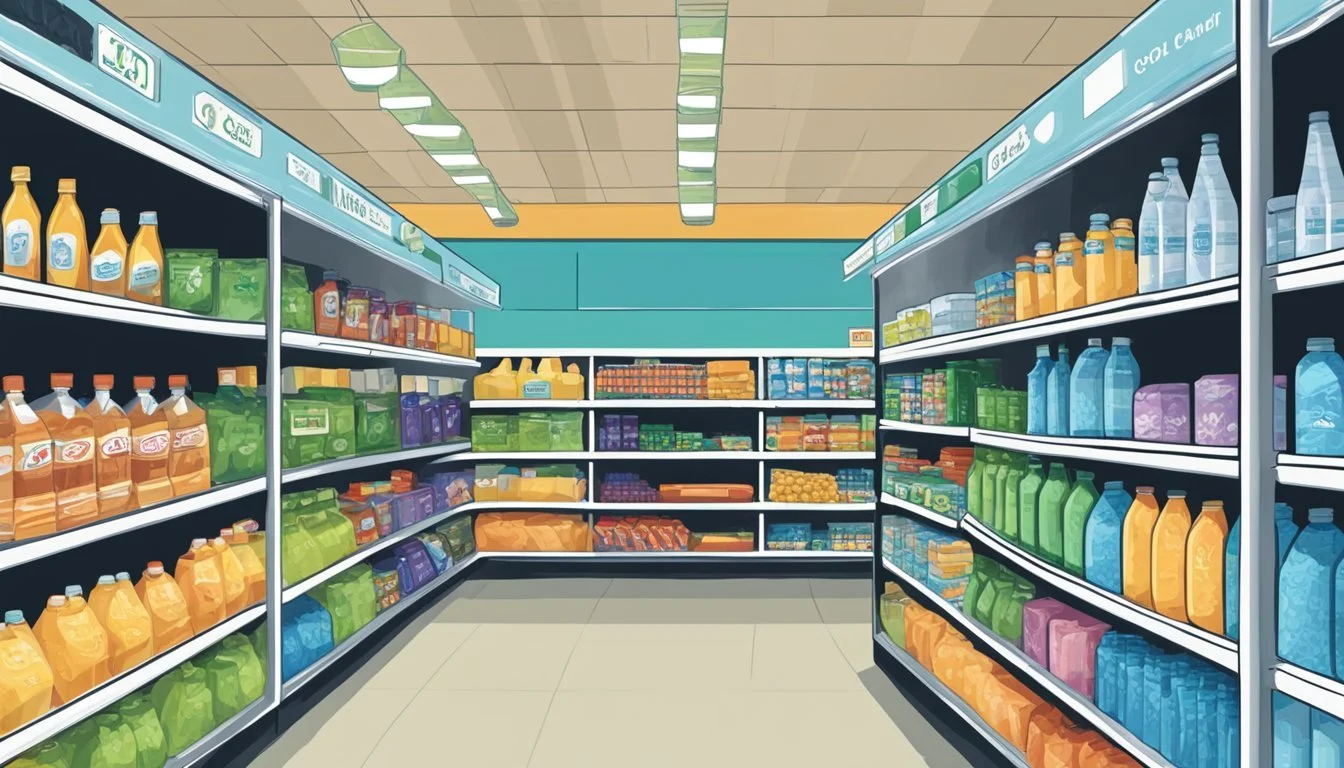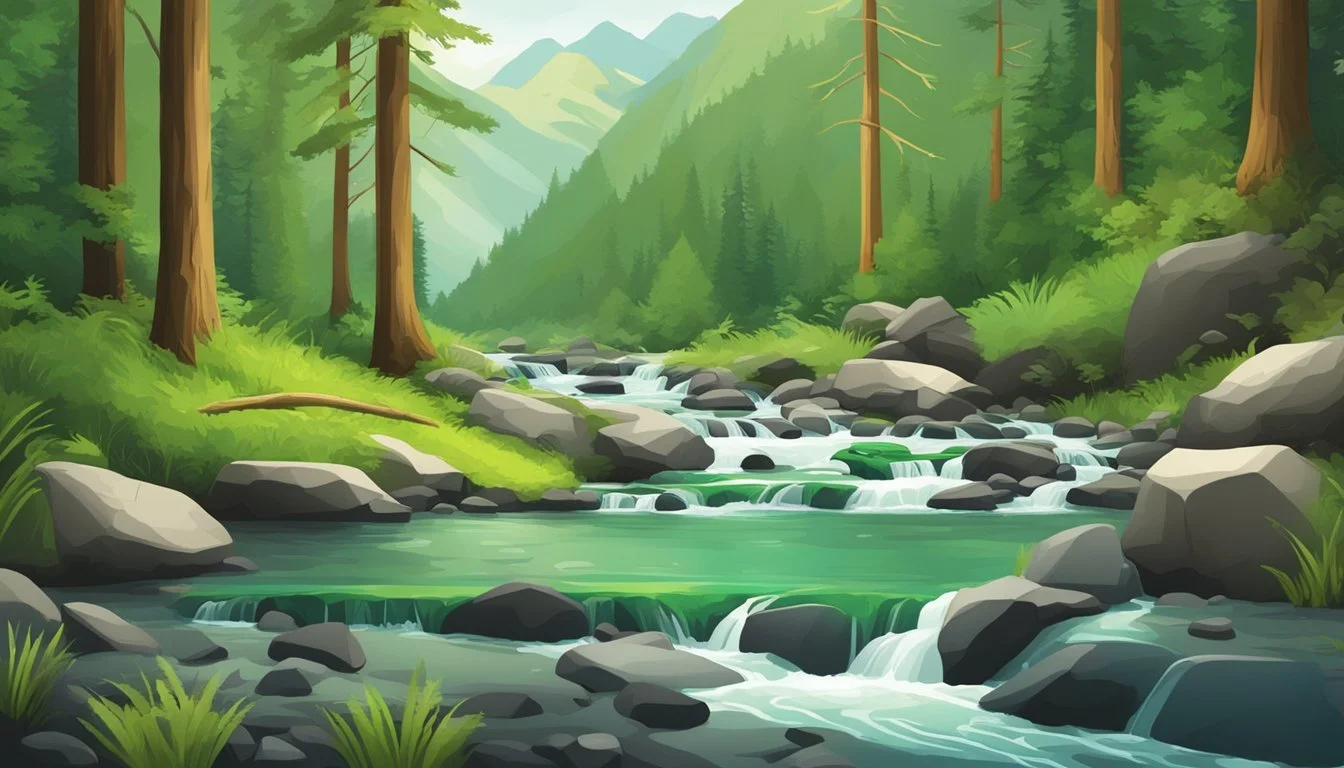Path vs. 7-Select
Which Bottled Water is Better? A Detailed Comparison
Choosing the best bottled water can be a challenge with so many options available. PATH and 7-Select are two popular brands, each offering unique benefits. PATH, known for its sustainability, provides ultra-purified, pH-balanced water in recyclable aluminum bottles. Though both brands have their merits, PATH stands out due to its commitment to reducing plastic waste with reusable containers.
7-Select, a brand under the 7-Eleven umbrella, delivers reliable bottled water often praised for its clean taste and convenience. While 7-Select may be easily accessible and familiar to many, it doesn’t prioritize environmental sustainability like PATH does. This makes PATH a compelling choice for environmentally conscious consumers.
Consumers looking for a blend of quality and sustainability might find PATH more appealing. Its mission to eliminate single-use plastics aligns with the growing demand for eco-friendly products. For those prioritizing both hydration quality and environmental impact, PATH offers a superior choice.
Understanding Bottled Water
Bottled water is consumed worldwide, appreciated for its convenience and perceived purity. Important aspects include its various types, the transparency of labels, regulations, and its health implications.
Types of Bottled Water
There are several varieties of bottled water, each sourced and processed differently. Purified water undergoes processes like reverse osmosis and distillation to remove impurities, leaving it devoid of minerals and electrolytes. Spring water comes from natural underground sources, maintaining its minerals. Mineral water contains a higher concentration of minerals, beneficial for hydration.
Alkaline water has a higher pH level, claimed to help balance the body's acidity. Filtered water passes through filters to remove contaminants but retains some beneficial minerals. Finally, distilled water is boiled and recondensed, removing minerals, and is often used in medical contexts.
Label Transparency and Regulations
Label transparency in bottled water is crucial for consumer trust. Regulations by authorities like the FDA ensure bottled water safety and quality. Labels must indicate the source, treatment processes, and any chemical additives.
Transparency about the pH level, mineral content, and source is important. For instance, stating whether water is spring water, purified via distillation, or filtered through reverse osmosis helps consumers make informed choices. Mislabeling or false claims about toxins or health benefits can mislead consumers and pose health risks.
Health Implications of Bottled Water
The health implications of consuming bottled water vary based on its type and treatment. Purified drinking water is free from contaminants but lacks natural minerals. Mineral water provides essential minerals like calcium and magnesium, promoting bone health and immune system function. Alkaline water is touted for its potential to neutralize stomach acid, benefiting those with acid reflux.
Concerns also revolve around bacteria and chemicals, such as pesticides, that might still be present. Regular consumption of bottled water should be balanced with consideration of the environmental impact and the presence of substances like fluoride and frequent use of plastic bottles.
Making informed choices about the type of bottled water can support overall health, whether opting for mineral-rich water or safer, purified forms.
Comparing Path and 7-Select Brands
The comparison between Path and 7-Select bottled water brands focuses on their sources, purification processes, flavor profiles, mineral content, packaging, and environmental efforts.
Source and Purification Process
Path sources its water from various locations and uses a rigorous purification method. The water undergoes reverse osmosis filtration to achieve ultra-purified, pH-balanced water. This ensures contaminants are minimized, making the water safe and fresh.
7-Select typically uses municipal sources, which are treated to meet drinking water standards. The treatment processes include filtration and sometimes reverse osmosis. They aim to provide clean and accessible bottled water.
The high level of purification in Path's process sets it apart from 7-Select, which relies more on municipal treatment standards.
Flavor and Mineral Content
The flavor profile of Path water is often described as clean and neutral, with a balanced pH that ensures no aftertaste. This makes it a favorite for those looking for pure, refreshing hydration.
7-Select, on the other hand, may have a slight tang due to its mineral content and municipal water origins. This tang isn't as noticeable but can vary between batches.
Path water may contain minimal amounts of minerals like calcium and magnesium, while 7-Select might include more noticeable levels of these and potentially sodium, depending on the source.
Packaging and Environmental Impact
Path uses refillable aluminum bottles that aim to reduce plastic waste significantly. These bottles are 100% recyclable, making them an environmentally friendly alternative to single-use plastics. The brand's commitment to sustainability is clear in their durable packaging.
7-Select, similar to other brands like Kirkland and smartwater, often relies on plastic bottles. While some efforts are made to use recyclable plastic, the impact is less significant compared to Path's aluminum bottles.
Path’s eco-friendly approach with aluminum bottles places it ahead in terms of sustainability and reducing environmental pollution.
Cost Analysis
Assessing the cost of Path and 7-Select bottled water involves comparing their prices and determining their overall value for consumers in the market.
Price Comparison
When examining the prices of Path and 7-Select, one must consider several factors. Path Water, often marketed as a premium and sustainable option, tends to be priced higher due to its eco-friendly aluminum packaging. A typical 20-ounce bottle of Path Water might cost around $2.50 to $3.00.
On the other hand, 7-Select, which is part of the 7-Eleven brand, typically positions itself as a more affordable option. A 20-ounce bottle of 7-Select water is usually priced between $1.00 and $1.50. This significant difference in price reflects the targeting of different market segments by these brands.
Brand Price Range (20 oz) Path $2.50 - $3.00 7-Select $1.00 - $1.50
Value for Money Assessment
Evaluating the value for money requires considering not just the cost but what the consumer receives in return. Path Water offers the advantage of reusability due to its durable aluminum bottle. This can be a significant benefit for eco-conscious consumers, justifying the higher price for some.
7-Select, in contrast, provides a cost-effective solution for those seeking straightforward hydration without the need for reusable packaging. Its lower price point makes it accessible for a broader audience, particularly those frequenting 7-Eleven stores.
In essence, while Path caters to consumers prioritizing sustainability and quality, 7-Select appeals to those looking for affordability and convenience.
Consumer Perception and Market Trends
The bottled water market has seen significant shifts in consumer preferences and market trends over the years, influencing how brands like Path and 7-Select are perceived.
Brand Reputation and Recognition
Brand reputation plays a pivotal role in consumer choice. Established brands such as Dasani, Aquafina, and Nestle Pure Life have long been recognized for their consistency and quality. Essentia and Fiji are often associated with premium quality due to their mineral content and taste. Evian and Voss have carved out niches with their high-end appeal.
Newer brands have to work hard to gain trust and recognition. Just Water, for example, has positioned itself as an eco-friendly option, resonating with environmentally conscious consumers. Brand recognition is often bolstered by marketing efforts, celebrity endorsements, and visible placement in retail locations.
Consumer Preferences and Purchasing Habits
Consumer preferences in bottled water primarily hinge on taste, quality, and health benefits. The convenience of bottled water is a significant factor, often leading to its preference over tap water. In 2021, Americans consumed 15.7 billion gallons of bottled water, highlighting this trend.
Purchasing habits are influenced by perceived quality and brand loyalty. Fiji and Essentia appeal to those seeking higher mineral content, while Evian and Voss attract consumers looking for a luxury experience. Price sensitivity also plays a role, with brands like 7-Select offering competitive pricing.
Awareness of potential health risks associated with tap water, such as contamination, drives consumers toward trusted bottled water brands. The market continues to grow, with the U.S. bottled water market estimated at USD 44.6 billion in 2023, expected to increase annually. This growth reflects ongoing consumer demand for safe and convenient hydration options.
Health Considerations and Hydration
When comparing Path and 7-Select bottled water, it's important to look at hydration efficacy, essential mineral benefits, and potential health risks. Each brand offers unique properties that may influence consumer choice.
Hydration Efficacy and Mineral Benefits
Hydration is a critical aspect of overall health. Both Path and 7-Select bottled water are designed to keep you hydrated. Path provides purified water that is pH-balanced to enhance hydration. On the other hand, 7-Select often includes minerals like calcium, magnesium, and sodium, contributing to important bodily functions.
Calcium and magnesium are crucial for bone health and muscle function. Sodium helps maintain fluid balance and supports nerve function. Path’s pH-balance aids in maintaining your body’s natural pH levels, which can be beneficial for daily hydration needs.
Though both brands hydrate effectively, 7-Select's mineral content may offer additional health benefits. These include improved bone density and better immune system function through minerals like iron and fluoride.
Potential Health Risks and Safety
Safe drinking water is a vital public health concern. 7-Select bottled water undergoes regular testing to ensure it is free from harmful contaminants, such as bacteria and heavy metals. This minimizes risks of water-borne diseases and supports long-term health.
There are concerns about the potential presence of harmful chemicals, like BPA from plastic bottles. Path offers a more environmentally-friendly option with its reusable bottles, potentially reducing exposure to such chemicals. Path water is often tested for safety and adheres to strict municipal standards.
Furthermore, while fluoride in water can prevent dental cavities, excessive intake might pose health risks like dental fluorosis. Thus, monitoring fluoride content is crucial. Path's balanced approach to purification and lack of plastic chemicals makes it a safer choice for regular hydration, considering potential long-term effects.
In summary, both options are safe for consumption, but each comes with distinct health-related features to consider.
Environmental and Regulatory Aspects
The environmental and regulatory factors of Path and 7-Select bottled waters reveal notable differences in their sustainable practices and adherence to safety and quality standards set by various agencies. Understanding these can help consumers make informed choices about their beverages.
Sustainable Practices and Recycling
Both Path and 7-Select have made efforts to address environmental concerns, but their approaches differ. Path focuses on reusable aluminum bottles, promoting them as a sustainable alternative to traditional plastic bottles. This minimizes plastic waste and encourages consumers to reuse their bottles multiple times.
7-Select, primarily using plastic bottles, has initiatives aimed at increasing the recycling rate and incorporating recycled materials into their packaging. They support curbside recycling programs and aim to educate consumers about the importance of recycling. Despite this, plastic bottles still pose significant environmental impacts due to their widespread use and longer degradation period compared to aluminum.
Both brands are striving to improve their environmental footprints, but consumers concerned with sustainability might lean towards Path’s reusable options.
Regulations and Quality Assurance
Path and 7-Select bottled waters are regulated under different frameworks to ensure safety and quality. The Food and Drug Administration (FDA) oversees bottled water, ensuring it meets strict standards meant for packaged food products. These regulations cover contaminants, additives, and proper labeling, ensuring bottled water sold in the U.S. is safe for consumption.
Public drinking water, such as tap water, falls under the jurisdiction of the Environmental Protection Agency (EPA). While Path and 7-Select are bottled waters and thus regulated by the FDA, it’s crucial that they meet the quality assurances similar to those set for public water systems to avoid harmful contaminants.
Both brands are committed to providing safe drinking water and often publish quality reports to highlight their adherence to safety standards. The International Bottled Water Association (IBWA) supports these efforts by promoting high-quality bottled water through its own set of guidelines and certifications.
Consumers can feel confident that both Path and 7-Select meet rigorous regulatory standards, but they should stay informed about the safety and origin of their beverages.
More About Path
Mountain Valley Spring Water vs Path: Which Bottled Water is Better?
Path vs Whole Foods Italian Still Mineral water: Which Bottled Water is Better?
More About 7-Select
7-Select vs Kirkland Signature: Which Bottled Water is Better?
Cascade Mountain vs 7-Select: Which Bottled Water is Better?
Hawaiian Springs vs 7-Select: Which Bottled Water is Better?
Icelandic Glacial vs 7-Select: Which Bottled Water is Better?
Mountain Valley Spring Water vs 7-Select: Which Bottled Water is Better?
Nestle Pure Life vs 7-Select: Which Bottled Water is Better?
Richard's Rainwater vs 7-Select: Which Bottled Water is Better?
Talking Rain AQA vs 7-Select: Which Bottled Water is Better?
Whole Foods Italian Still Mineral water vs 7-Select: Which Bottled Water is Better?





